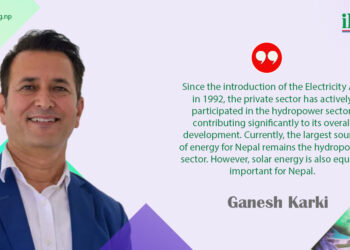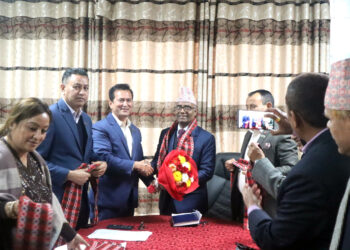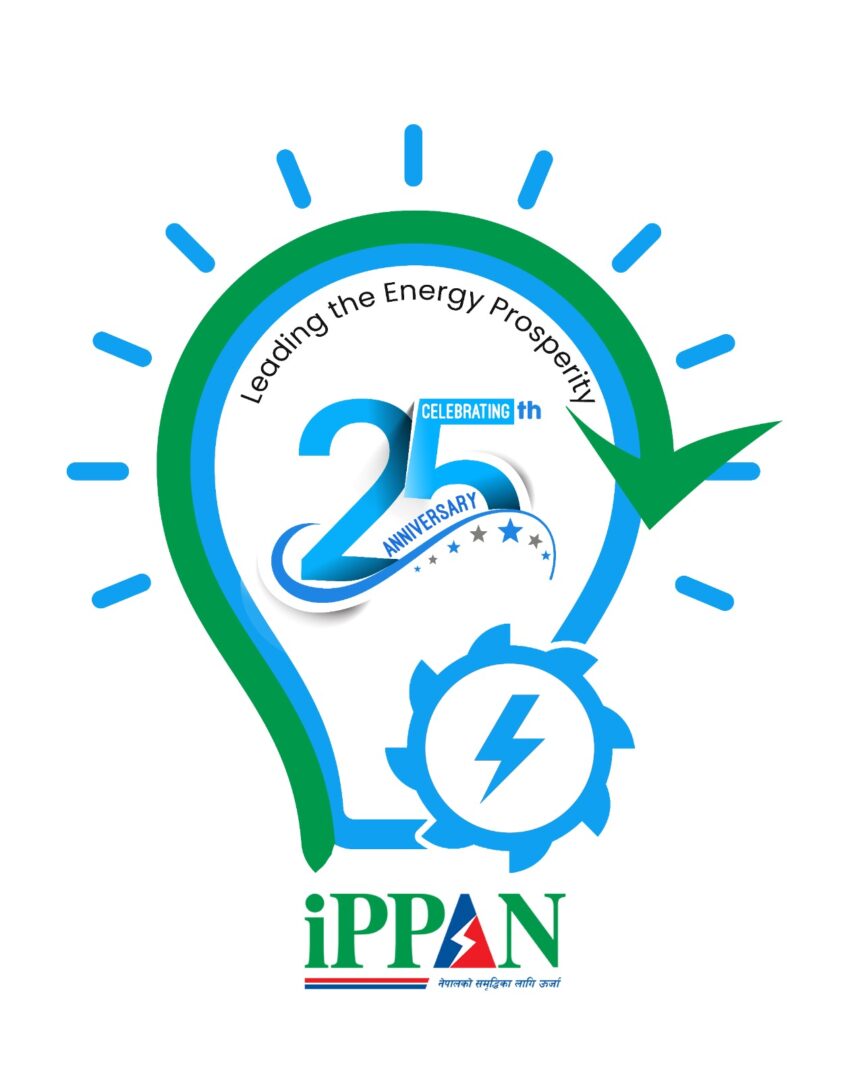Kathmandu, Jan 18: Deputy Prime Minister and Home Affairs Minister, Narayan Kaji Shrestha, has emphasized that hydroelectricity is the major means for reducing the trade deficit and taking the country ahead towards prosperity, and the government has kept it as the main priority.
Addressing a programme organised on the 24th anniversary of the Independent Power Producers’ Association, Nepal (IPPAN) here today, he said the country’s energy sector can leap only through a meaningful initiative of the government and the private sector.
DPM Shrestha stressed the need to increase the consumption of energy within the country, stating that the government is effortful in reducing the trade deficit by selling the surplus power. Reiterating that the government is committed to creating an environment conducive to investment in the energy sector, he said the present government is active in realizing the desire of Nepali people for economic prosperity.
“Economic prosperity, social justice and good governance are the main priorities of the government,” he said. Stating that the Investment Summit is being held in the coming April, DPM Shrestha maintained the bodies concerned would be consulted for legal and structural improvements for bringing foreign investment in the energy sector.
According to him, although an agreement has been made to export 10,000 megawatts of electricity to India in 10 years, the topic of increasing the domestic consumption of power is the major priority.
Minister for Energy, Water Resources and Irrigation, Shakti Bahadur Basnet, said the private sector has a contribution of 60 percent in the energy sector of the country and the national motto of building a prosperous Nepal would be fulfilled only through partnership between the government and the private sector.
He reiterated that the government is committed to addressing the demands put forth by the private sector and it has moved ahead respecting the appropriate ones. The Energy Minister presented the data that energy production has increased from 800 megawatts to 3,000 megawatts over the last decade and electricity has reached 98 percent of households.
He called for thinking in a new way from today alone for bridging the gap in energy production during the monsoon and the dry season, stressing on creation of an environment for speeding up the under-construction projects, keeping in priority the reservoir-based projects and moving ahead the concept of energy mixture.
Minister Basnet maintained that the government has not seen the energy sector only as infrastructure, but also accepted it as the main basis for economic prosperity, urging the private sector to invest without any qualms.
“I draw your attention, to why could not the works be carried out notably even for more than 10 years after taking the production license. I call upon IPPAN for taking up responsible initiation on this,” he said, urging the private sector to fulfill its responsibility. The Energy Minister assured the private sector not to worry much about the power purchase agreement issue, saying, “You come forward that you will do a certain amount of work. Come forward completing the works that need to be done from your side. The Ministry shall facilitate in creating a conducive environment for that. The government is ready to address the demands of the private sector.”
IPPAN president Ganesh Karki said the country’s energy sector is progressing and urged the government to address the demands related to power purchase agreements and the like. He also called the attention of the government to addressing the security challenges of the energy sector. (The Rising Nepal/RSS)









Discussion about this post